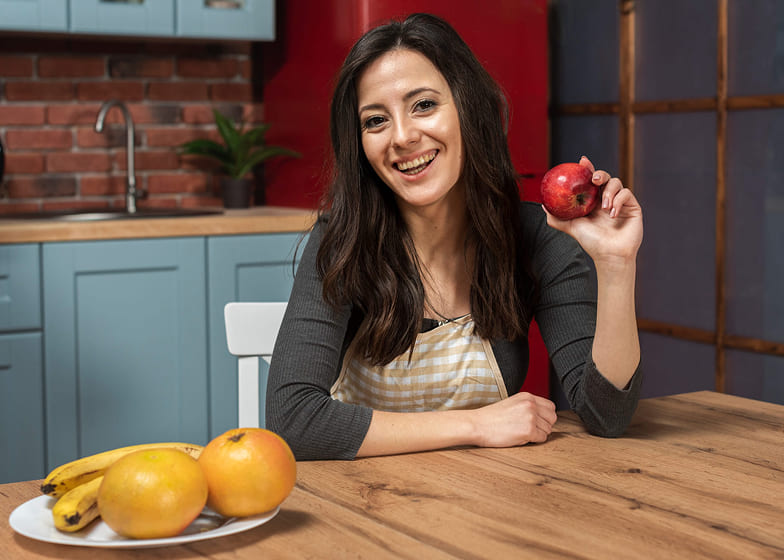In today’s fast-paced world, finding time to cook healthy meals can feel impossible. Between work, family, and daily responsibilities, it’s easy to turn to processed or fast food for convenience. However, meal prepping — the practice of preparing meals or ingredients in advance — offers a simple, time-saving solution for maintaining a balanced diet even on the busiest days. By setting aside a few hours each week, you can ensure you always have nutritious, ready-to-eat meals that support your health and energy levels.
Meal prep not only saves time but also helps with portion control and mindful eating. Preparing your meals ahead allows you to make healthier choices, avoid unnecessary snacking, and stick to your nutrition goals. You can plan balanced meals with the right mix of proteins, healthy fats, complex carbs, and plenty of vegetables. For example, cooking batches of grilled chicken, quinoa, or roasted vegetables can serve as the base for multiple quick meals throughout the week — simply mix and match ingredients for variety.
Another benefit of meal prepping is that it reduces stress and food waste. Knowing what you’ll eat ahead of time removes the daily question of “What’s for dinner?” and prevents impulse eating. Plus, by buying and cooking in bulk, you save money while minimizing spoiled ingredients. Proper storage, like using airtight containers and labeling meals by date, keeps food fresh and safe for several days.
Ultimately, meal prep is more than just a cooking strategy — it’s a lifestyle habit that promotes consistency and well-being. Whether you’re managing a busy career or juggling multiple responsibilities, having healthy, prepped meals on hand gives you control over your diet, fuels your productivity, and supports long-term health goals. With a little planning, eating healthy doesn’t have to be complicated — it just needs preparation and commitment.
Healthy Meal Prep Ideas for Busy People
Understanding Meal Prep
Meal prep is the practice of preparing meals or ingredients in advance, helping busy people maintain a healthy diet without stress. It’s about planning, cooking, and storing meals efficiently so that nutrition isn’t compromised even on hectic days.
Saves Time
Time is one of the biggest constraints for busy individuals. Preparing meals in batches significantly reduces daily cooking. For example, cooking a large batch of chicken, quinoa, and vegetables on Sunday means you only need to assemble or reheat meals during the week. This not only saves time but also allows for more flexibility in your daily schedule. Additionally, having meals ready prevents last-minute trips to restaurants or fast-food outlets, which often take longer than reheating a prepped meal at home.
Batch cooking also reduces cleanup time. Instead of washing multiple pots and pans each day, you can clean once after preparing multiple meals. This efficiency makes it easier for people to stick to meal prep as a long-term habit without feeling overwhelmed by kitchen work.
Encourages Healthy Eating
Meal prep ensures that every meal is balanced and nutritious. By choosing fresh ingredients and controlling portions, you reduce the reliance on processed or fast foods that are often high in sugar, salt, and unhealthy fats. For instance, prepped meals with lean proteins, whole grains, and vegetables provide consistent energy, improve digestion, and support overall health.
Additionally, meal prepping allows for customization. You can tailor meals to your dietary goals, whether it’s weight management, muscle gain, or maintaining energy levels for a busy day. This control over ingredients and portions helps develop healthier eating habits over time.
Reduces Stress
Deciding what to eat every day can be mentally exhausting, especially with a busy schedule. Meal prep eliminates this daily decision-making, reducing stress and saving mental energy. Knowing that healthy meals are ready to eat allows you to focus on work, family, or personal priorities without worrying about nutrition.
Stress reduction also improves your overall well-being. By having meals planned and ready, you avoid unhealthy last-minute choices that can negatively affect your energy levels, mood, and long-term health. Meal prep essentially acts as a support system for maintaining both physical and mental wellness.
Planning Your Meals
Meal planning is the backbone of effective meal prep. Without a clear plan, meals may be repetitive, ingredients could go unused, and prep may become overwhelming.
Assess Your Weekly Schedule
Start by evaluating your weekly routine to identify which meals require preparation. Workdays may need fully prepped lunches and dinners, while weekends may only require breakfast or snack prep. Understanding your schedule allows you to allocate time efficiently and plan meals according to your daily needs.
Assessing your schedule also helps in portioning ingredients correctly. For instance, if you know certain days are busier than others, you can pre-portion meals to be grab-and-go, while leaving more elaborate meals for lighter days when you have extra time.
Create a Balanced Meal Plan
A balanced meal plan includes lean proteins, healthy fats, complex carbohydrates, and plenty of vegetables. Planning ensures that you get all essential nutrients and prevents over-reliance on a single food group. For example, grilled salmon with quinoa and roasted broccoli provides protein, fiber, and essential vitamins in one meal.
Variety is also key to avoid diet boredom. Planning multiple recipes in advance allows you to rotate meals throughout the week, keeping flavors interesting and ensuring nutrient diversity. Meal planning also helps identify grocery needs in advance, reducing unnecessary purchases.
Make a Detailed Shopping List
Once meals are planned, create a shopping list with every ingredient categorized by type—produce, protein, grains, and pantry staples. This organized approach saves time at the store and ensures you have all items needed for the week.
A detailed list also prevents impulsive or unnecessary purchases, saving money and reducing food waste. You can even schedule your grocery shopping based on sales or seasonal produce, making meal prep both cost-effective and sustainable.
Breakfast Meal Prep Ideas
Breakfast is often skipped or replaced with quick, less nutritious options due to lack of time. Prepping breakfast ahead ensures you start the day with energy and nutrition.
Overnight Oats
Overnight oats are a convenient, customizable breakfast option. Combine oats, milk or yogurt, chia seeds, and fruits in jars and refrigerate overnight. By morning, your breakfast is ready to eat, providing fiber, protein, and slow-release carbohydrates to keep you full until lunch.
These oats can be modified daily by adding different fruits, nuts, or spices, allowing variety without extra effort. They are also portable, making them ideal for busy mornings when you need a meal on the go.
Egg Muffins
Egg muffins are made by whisking eggs with vegetables, lean meats, and cheese, then baking in muffin tins. They are protein-rich, reheatable, and easy to carry. A batch of egg muffins can provide several breakfasts for the week, saving time and ensuring a nutritious start.
These muffins also encourage vegetable intake early in the day. You can add spinach, peppers, or tomatoes to increase vitamins and minerals, making them a balanced breakfast option that supports energy and concentration.
Smoothie Packs
Pre-portion fruits, leafy greens, and protein powders in freezer bags. In the morning, blend with milk or water for a quick, nutrient-dense smoothie. This reduces prep time while ensuring you get essential vitamins and minerals daily.
Smoothie packs also allow for experimentation with flavors and ingredients. Adding ingredients like chia seeds, nut butter, or oats increases fiber and protein content, making the breakfast more filling and sustaining.
Lunch and Dinner Prep
Preparing lunches and dinners in advance is the cornerstone of meal prep. It ensures you have balanced meals ready, reducing the temptation to rely on fast food during busy weekdays.
Cook Proteins in Bulk
Cooking proteins in large batches saves significant time during the week. Options like chicken, turkey, tofu, fish, or legumes can be prepared and stored in containers. These pre-cooked proteins can then be quickly combined with grains, vegetables, or sauces for a variety of meals. For example, grilled chicken can be used in salads, wraps, or stir-fries without additional cooking. Batch cooking proteins also allows you to season differently for variety. One batch could be roasted with Italian herbs, another with a spicy marinade. This prevents meals from becoming monotonous and keeps your diet exciting, encouraging adherence to healthy eating habits.
Cooking in bulk also ensures consistency in nutrition. Pre-measuring proteins ensures you meet daily protein needs without guesswork, supporting energy levels, muscle maintenance, and satiety throughout the day.
Prepare Grains Ahead
Cooking grains in advance, such as quinoa, brown rice, couscous, or whole wheat pasta, saves time and provides versatile meal bases. Pre-cooked grains can be portioned into containers and mixed with proteins and vegetables to create different meals throughout the week.
Storing grains properly maintains texture and taste. Use airtight containers to prevent moisture or spoilage. Grains like quinoa and rice can be quickly reheated in the microwave or sautéed with seasonings for a fresh-tasting meal.
Having grains prepped also encourages healthier choices. Instead of grabbing white bread or instant noodles when hungry, you have nutritious, fiber-rich carbohydrates ready to go, supporting sustained energy levels and stable blood sugar.
Pre-Chop Vegetables
Vegetables are essential for nutrients, fiber, and antioxidants, but chopping daily can be time-consuming. Prepping vegetables ahead of time—washing, peeling, and chopping—saves minutes every day and encourages higher intake of fresh produce.
Roasted or lightly steamed vegetables can be stored in airtight containers, ready to add to meals such as salads, stir-fries, or grain bowls. Prepped vegetables also retain freshness longer when stored properly, reducing food waste.
Pre-chopping vegetables also increases convenience for healthy snacking. For example, carrot or celery sticks with hummus can serve as an easy snack, ensuring you meet daily vegetable intake goals without added stress.
Snack Prep
Healthy snacks prevent energy dips and reduce cravings for unhealthy foods. Prepping them in advance guarantees accessibility, helping you stay fueled and focused.
Nut Mixes
Nuts like almonds, walnuts, cashews, or seeds are rich in healthy fats, protein, and fiber. Pre-portioning them into small snack bags provides convenient grab-and-go options. This prevents overconsumption and ensures consistent energy throughout the day.
Nut mixes also help maintain satiety between meals. Unlike processed snacks, which often spike blood sugar and cause crashes, nuts provide steady energy and support brain function. You can also add dried fruits or dark chocolate in small amounts for variety and taste without compromising health.
By preparing nut mixes in advance, you avoid buying packaged snacks that are often high in sugar and preservatives. This is both cost-effective and nutritionally superior.
Veggie Sticks with Dip
Cutting carrots, celery, bell peppers, and cucumbers in advance allows for quick, nutrient-rich snacking. Pairing them with dips like hummus, guacamole, or Greek yogurt adds flavor and protein, making them more satisfying.
Pre-portioned snack boxes make it easier to grab vegetables during work breaks or while on the go. This habit increases daily vegetable intake, which is crucial for digestion, immune support, and overall health.
Veggie sticks with dip also help reduce reliance on processed snacks like chips or candy. By keeping healthy options accessible and ready, you’re more likely to choose them over less nutritious alternatives.
Pre-Portioned Fruits
Washing, slicing, and storing fruits like apples, berries, melon, or pineapple in containers ensures they’re always ready to eat. Pre-portioned fruits save time and make healthy snacking more convenient.
Fruits provide essential vitamins, minerals, and fiber, supporting digestion, immunity, and energy levels. Having them prepped reduces the temptation to reach for sugary, processed snacks during busy hours.
Prepped fruits are also versatile. They can be added to breakfast oats, smoothies, or salads, creating multiple meal options from a single preparation effort.
Storage and Freezing Tips
Proper storage is critical to preserving freshness, maintaining taste, and extending the life of prepped meals.
Freezing Meals
Freezing meals like soups, stews, casseroles, or cooked proteins allows for long-term storage and convenience. Portion meals into individual containers to avoid reheating excess amounts and reduce waste.
Frozen meals are ideal for emergencies or days when you can’t cook. By labeling containers with dates and meal names, you ensure you consume meals before they lose quality.
Freezing also preserves nutrients in vegetables and proteins when done correctly. Blanching vegetables before freezing prevents nutrient loss and keeps them crisp for future use.
Airtight Containers
Glass or BPA-free plastic containers are best for storing prepped meals. Airtight seals prevent spoilage, retain moisture, and maintain flavor.
Using different-sized containers allows portion control and flexibility. Small containers are perfect for snacks, while larger ones store full meals or batch-cooked grains.
Proper storage also reduces food waste. Meals that stay fresh longer are more likely to be consumed, saving money and minimizing environmental impact.
Meal Rotation System
Implementing a rotation system ensures older meals are eaten first. Labeling containers with preparation dates helps track freshness and reduces the risk of consuming spoiled food.
A rotation system also encourages variety. By cycling through different prepped meals, you avoid monotony and maintain interest in healthy eating.
Mindful Eating Through Meal Prep
Meal prep encourages intentional, mindful eating, helping you enjoy meals while maintaining portion control and nutritional balance.
Portion Awareness
Pre-portioned meals teach moderation and prevent overeating. By knowing exactly how much food to eat at each meal, you avoid consuming excessive calories or unhealthy foods.
Portion control also improves digestion and energy levels. Balanced meals in the right amounts prevent sluggishness after eating and support weight management goals.
Eating Without Distractions
Prepared meals allow for focused eating, without distractions like fast food packaging, digital screens, or rushed cooking. Mindful eating enhances the enjoyment of flavors, textures, and aromas, promoting satisfaction with smaller portions.
Eating mindfully also improves digestion and reduces the risk of overeating. When meals are prepped thoughtfully, you can take the time to appreciate your food and maintain a healthier relationship with eating.
Balanced Nutrition
Meal prep ensures each meal contains the right mix of macronutrients—protein, carbohydrates, and fats—as well as essential vitamins and minerals. This balanced nutrition supports energy, concentration, and overall health.
Having prepped, balanced meals also encourages consistency in dietary habits. Over time, this reinforces long-term health benefits, including improved metabolism, better weight management, and sustained energy levels.
Reducing Food Waste
Meal prep is an effective strategy for reducing food waste while saving money.
Plan Portions Carefully
Cooking only the quantities needed ensures you use all ingredients efficiently. Proper portioning prevents leftover food from spoiling and reduces unnecessary waste.
Use Leftovers Creatively
Unused ingredients can be transformed into soups, salads, stir-fries, or wraps. Repurposing leftovers not only saves money but also reduces the environmental impact of discarded food.
Smart Storage
Storing perishable items in visible, accessible locations ensures they’re consumed before spoiling. Using airtight containers extends freshness, while labeling meals with dates supports rotation and reduces the risk of waste.
Summary
Healthy meal prep is a powerful strategy for busy individuals to maintain nutritious, balanced meals while saving time and reducing stress. By planning meals in advance, batch cooking proteins, grains, and vegetables, and organizing snacks, you can ensure consistent energy, better portion control, and improved overall health. Using time-saving techniques like sheet pan meals, one-pot recipes, or slow cookers makes preparation efficient, while storage and freezing methods preserve freshness and reduce food waste. Meal prep can also be tailored to specific dietary needs, such as plant-based, low-carb, or gluten-free diets, making it flexible and sustainable. Over time, consistent meal prep fosters mindful eating, supports long-term wellness, and helps develop healthier eating habits without compromising convenience or flavor.

















